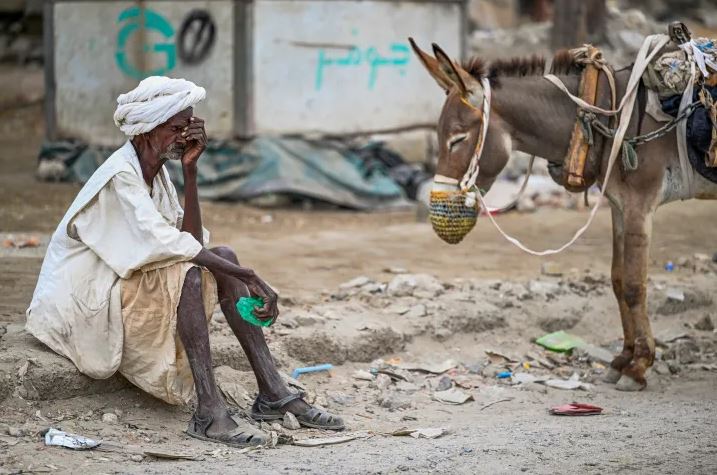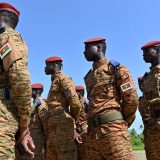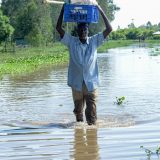One year into the conflict in Sudan, humanitarian agencies warn that the dire conditions and insufficient aid are pushing the nation perilously close to famine.
The conflict, which began a year ago between Sudan’s military led by Gen. Abdel-Fattah Burhan and the notorious Rapid Support Forces under Gen. Mohammed Hamdan Dagalo, will reach its one-year mark on Monday. United Nations data reveals that the war has resulted in thousands of deaths and forced eight million people to flee their homes to safer regions within Sudan or to neighboring countries.
Despite these staggering figures, the lack of aid and precarious circumstances are exacerbating Sudan’s vulnerability to famine. Humanitarian organizations working in Sudan express deep concern over the deteriorating food security situation, with the Integrated Food Security Phase Classification (IPC) emphasizing the urgent need for action to prevent widespread starvation and the collapse of livelihoods.
Food production has plummeted, imports have been disrupted, and staple food prices have skyrocketed by 45% in less than a year, according to the United Nations Office for the Coordination of Humanitarian Affairs (OCHA). Conflict-related restrictions on the movement of food, particularly to rural and remote areas where the majority of the population resides, have further compounded the crisis, pushing more than 37% of the population into hunger levels surpassing mere crisis levels.
Reports from the ground paint a grim picture of people dying from malnutrition and resorting to eating leaves off trees or surviving on a meal once every three days. Justin Brady, the head of OCHA in Sudan, appeals to the international community to pressure the warring factions to cease hostilities, increase funding for the U.N. response plan (currently only 5% funded for the year), and facilitate access to the worst-affected regions in Khartoum, Darfur, and the Kordofan region.
The conflict’s impact is particularly devastating for vulnerable groups like children, who lack essential supplies such as milk and diapers. Afaf Abd Alrasool, a displaced Sudanese woman, underscores the urgent need for humanitarian assistance, emphasizing the acute shortage of medical treatment and chronic diseases management.
The coup and subsequent war have dashed Sudanese hopes for a democratic transition following the ousting of longtime dictator Omar al-Bashir in 2019. Darfur, in particular, is experiencing its worst violence since 2005, according to United Nations experts.







